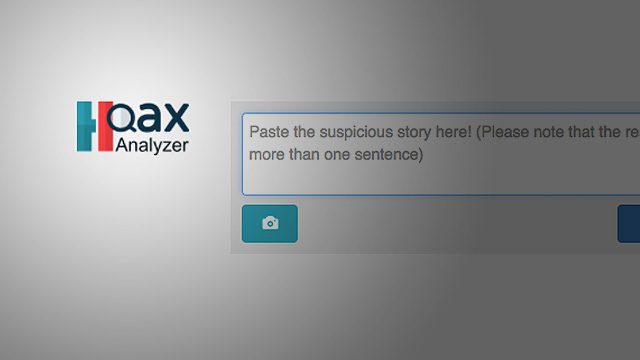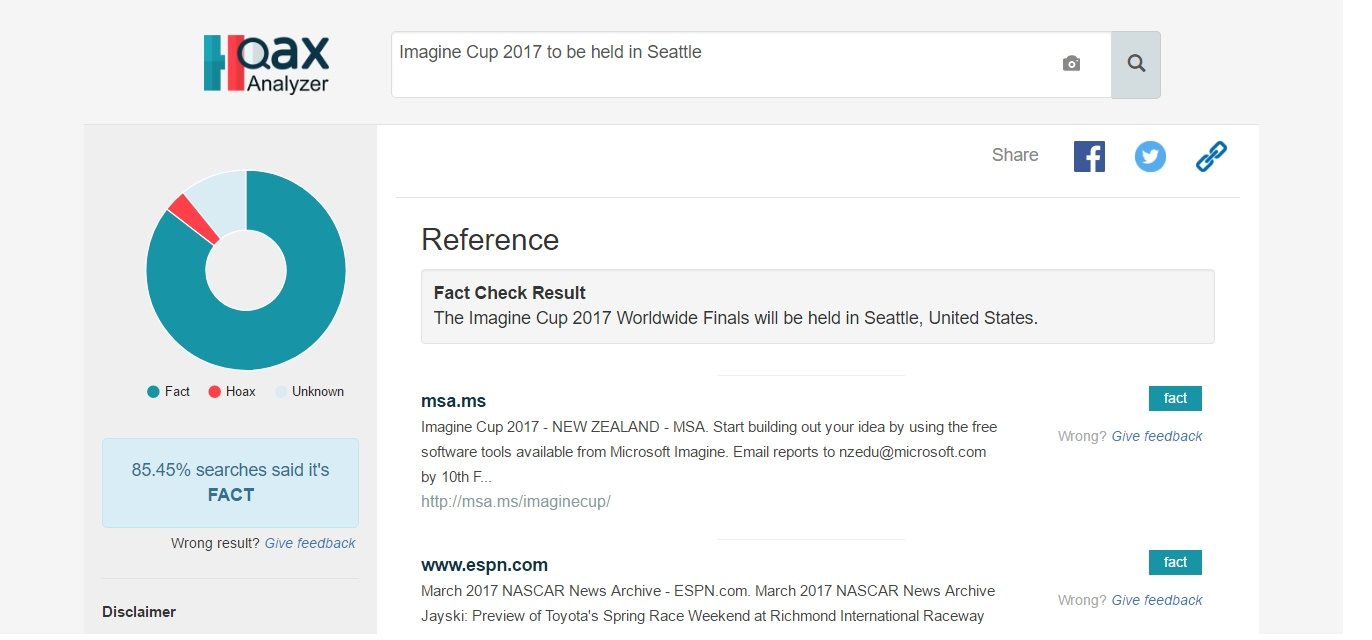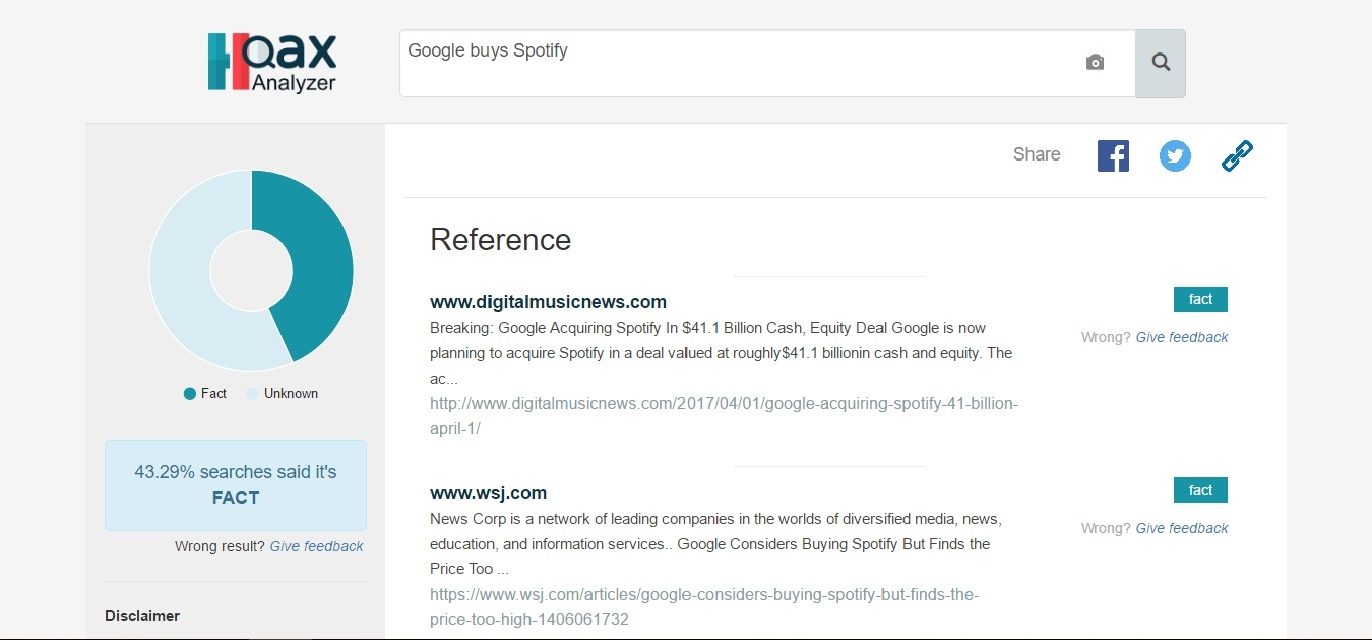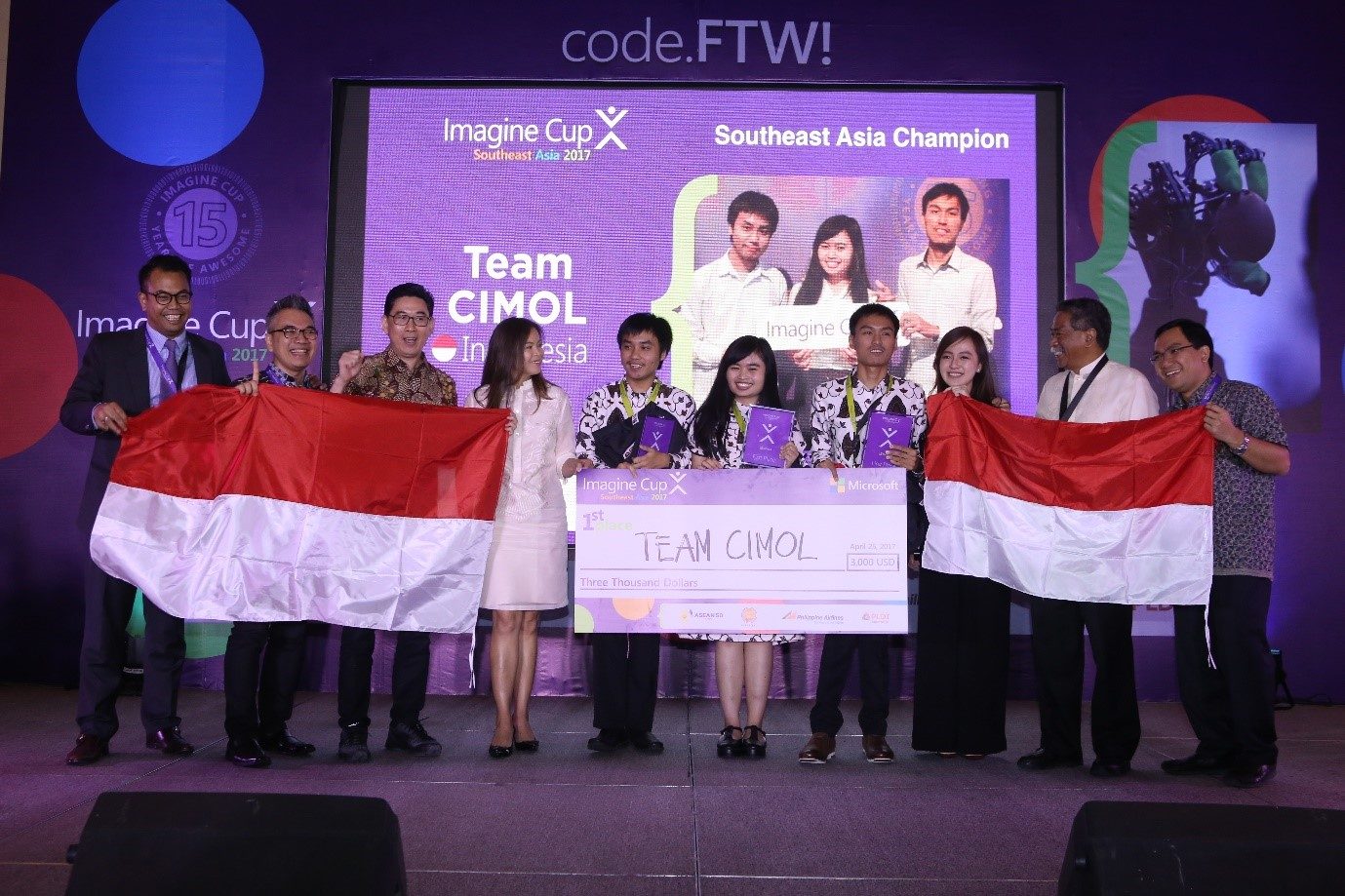SUMMARY
This is AI generated summarization, which may have errors. For context, always refer to the full article.

MANILA, Philippines – From mere rumors being reported as fact to satire-infused pieces, social media has become a breeding ground for hoaxes, alternative facts, and fake news. These types of “news,”capitalizes on a user’s knee-jerk reaction to share for various end-goals.
Just last April, Facebook went so far as to affirmatively declare that governments can sometimes run “information operations” on social media for various political goals. (Read: Facebook says gov’ts exploited its platform to manipulate opinion)
This lack of an easy way to determine the validity and truthfulness of online information inspired a group of Information Technology (IT) students from Indonesia to pitch an app that will address the problem. They developed the web app “Hoax Analyzer,” which won them the Southeast Asian regional finals of Microsoft’s software design competition, the Imagine Cup.
One of the things that make info-ops effective is that content can be created faster than they can be fact-checked. What CIMOL wants to do with their app is to make verification of online information quick and simple.
On the site, (www.hoaxanalyzer.com), the user simply has to copy the text in question an paste it on the text box of the app. The app then gathers instances of the text or the idea of the text (the app uses natural language processing technologies) found in other websites. The final step weighs the sites or the sources on which the text appears. If more than 50% of the sources are classified as “fact” then the text is declared as “fact” by the app. Otherwise, it’s declared a “hoax.”
Natural language processing tech is a type of AI implementation that understands the complexities of written and spoken language by taking word and sentence patterns into account.
The site also shows a pie chart showing what percentage of the results are fact and what is hoax.
Here’s an example showing the query “Imagine Cup 2017 to be held in Seattle,” a fact:

Photos with readable text, say a photo meme, can also be analyzed on the app.
Improvements
The app is still in its early stages of development, and there is currently a significant chance for the results to be incorrect.
In fact, the team revealed that when they demoed the app to an Indonesian panel, it wasn’t able to identify the April Fools’ fake news “Google buys Spotify” as a hoax. Here’s a screenshot of what appeared when we tried it for ourselves:

There is definitely room for improvement. Design-wise, going to a dedicated website to copy-paste a piece of news is too slow for today’s users. But technically, they have a sensible working model. For it to take off, there has to be some sort of integration with the services that people already use like Facebook, Twitter or web browsers.
Results are shareable through Twitter and Facebook but there’s no way yet to use the app’s fact-checking technologies on those platforms natively.
Additionally, the web app only uses search engine results from DuckDuckGo, Bing, and Wikipedia, and is missing integration with the world’s biggest search site, Google.
As for honing the app’s ability to show accurate results, the team thought of adding a feedback feature where the user could click on “hoax” if the results show it as “fact” and vice versa. Then again, that might leave the app vulnerable to alternatively-informed individuals and information operations.
Hosted on Microsoft’s cloud computing platform, Azure, the app also makes use of machine learning features to boost its proficiency in recognizing hoaxes; more data is gathered with each use and as more feedback is given.
Microsoft Imagine Cup
Team CIMOL of Indonesia, composed of Adinda Putra, Tifani Warnita, and Feryandi Nurdiantoro submitted the app in this year’s Imagine Cup hoping to encourage active social media users to fact-check the news they consume before sharing.

Celebrating 15 years of partnership, Microsoft’s Imagine Cup is co-organized by the Association of Southeast Asian Nations (ASEAN). In the contest, each team had to pitch their ideas and project to a panel of distinguished judges. Ten student teams from 13 Southeast Asian countries were selected to compete in the regional finals held in April.
Team CIMOL will be joined by six other runner-ups to compete in the world finals in Seattle, USA this July. They will be among the more than 50 teams around the world gunning for $100,000, mentorship opportunities with Microsoft, and grants to bring their projects to the market. – Rappler.com
Kyle Chua is an aspiring filmmaker who dreams of making his own sci-fi film one day. His love for the genre has him exploring the latest developments and advancements in tech.
Add a comment
How does this make you feel?
There are no comments yet. Add your comment to start the conversation.